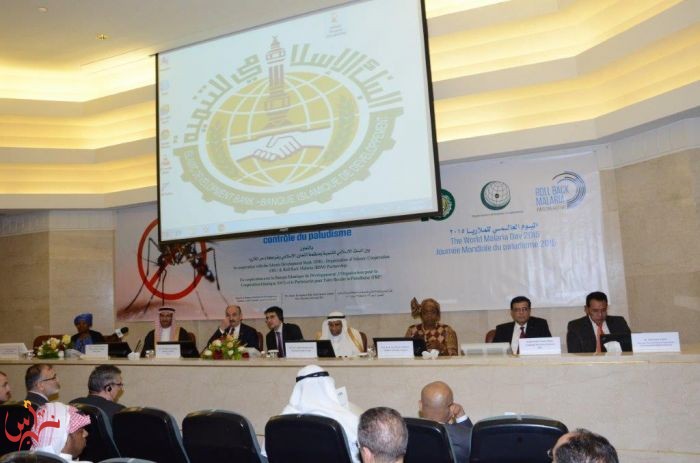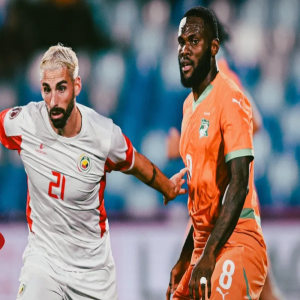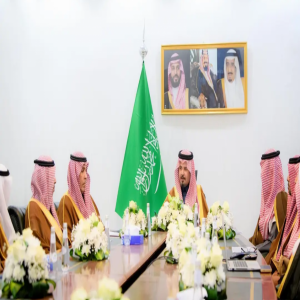(Jeddah, KSA; 23 April 2015) In advance of World Malaria Day, commemorated annually on 25 April, leaders from the Islamic Development Bank (IDB), The Organization of Islamic Cooperation (OIC), and the Roll Back Malaria (RBM) Partnership have organized a town hall meeting and photo exhibition at the headquarters of IDB in Jeddah, Saudi Arabia to raise awareness on the scourge of malaria in OIC countries. Leveraging the importance of the final World Malaria Day under the United Nations Millennium Development Goals (MDGs), participants noted the tremendous progress made against the preventable and treatable disease over the past 15 years and called for increased commitment and collective action to advance efforts toward ambitious malaria elimination targets, particularly in OIC countries.
In his message on the occasion, Mr. Iyad Ameen Madani, OIC Secretary General, underscored the centrality of health to overall socio-economic and human development. Accordingly health was a priority issue on the OIC agenda with disease prevention and control as one of the six major thrusts of the OIC Strategic Health Programme of Action (SHPA-2014-2023). Mr. Madani reaffirmed the commitment of the OIC to further strengthening its ongoing collaboration with Roll Back Malaria (RBM) and the Global Fund. He called upon the OIC Member States to continue to accord due attention to malaria control and elimination and enhance national efforts in that regard. He strongly appealed to donor countries, organizations and philanthropists in the OIC region to increase their contributions for malaria control and elimination efforts with a view to bridging the financing gap for achieving universal coverage of malaria control efforts.
In his remarks IDB President, Dr Ahmad Mohamed Ali stated that human development is the cornerstone of IDB’s developmental activities, and that can only be achieved by completely eradicating diseases like malaria which has become a health challenge in our member countries.
“We must work together to ensure that malaria is consigned to the dustbin of history, rather than surviving on our people. It is unthinkable to talk about development without having a healthy society. The malaria scourge has been one of the health issues our member countries are working hard to eliminate. It should be seen as a global problem that must be solved once and for all, and IDB is committed to play its role.” said Dr. Ahmad Mohamed Ali, President of IDB.
“We have seen tremendous progress in recent years – including in some OIC countries – but much work remains as we transition to a new post-2015 development agenda and set our sights on
ambitious elimination targets,” said Dr. Fatoumata Nafo-Traoré, Executive Director of the Roll Back Malaria Partnership. “Increased financing will be critical so we can continue saving lives and driving development efforts. I urge leaders from OIC member states – endemic and donor countries alike – to increase their commitment to malaria control and elimination efforts so communities in these countries might thrive.”
Present during the World Malaria Day celebration in Jeddah were the health Ministers of Turkey, Senegal and Saudi Arabia’s Under Secretary General of Health.
Despite best efforts, the World Health Organization estimates that malaria continues to cause an estimated 198 million cases of infection around the world each year, claiming the lives of approximately 584,000, nearly 80% of which are children under 5. With an estimated 131 million cases and 402,000 associated deaths each year, OIC countries account for more than half of all malaria burden globally and associated social and economic toll. Roughly 85% of malaria cases occurring in OIC countries are in sub-Saharan African member states.
Today, 13 OIC countries are among the 23 most malaria-affected nations worldwide that make up nearly 80% of global cases, including Nigeria, Uganda, Mozambique, Burkina Faso, Sudan, Niger, Guinea, Indonesia, Cote d’Ivoire, Senegal, Cameroon, Pakistan and Benin. In sub-Saharan Africa specifically, 12 OIC countries are included in the list of the 18 highest-burden malaria-endemic countries, which together accounted for 90% of malaria infections in the region in 2013.
With more than half of the world’s population at risk of infection, malaria presents an alarming threat to global development. Each year, malaria costs the African continent – home to 23 OIC countries – an estimated minimum of US $12 billion in lost productivity, and in some high-burden countries it can account for as much as 40% of public health expenditure.
With increased financing and greater coordination under the RBM Partnership, malaria mortality rates have decreased by 47% worldwide and 54% in Africa alone since 2000. Since 2001, it is estimated that more than 4 million malaria-related deaths have been averted, the large majority of which have been children under 5.
Malaria has consistently proven to be one of the most cost-effective health interventions in history, with related interventions saving lives and advancing broader development efforts by reducing school absenteeism, fighting poverty, increasing gender parity and improving maternal and child health, among others. Lives saved from malaria control interventions have been linked to a 20% of reduction in all-cause child mortality in sub-Saharan Africa since 2000, creating healthier generation of youth and driving progress toward MDG4.
For OIC member states, strong political leadership and support from the Global Fund to Fight AIDS, Tuberculosis and Malaria has seen more than US $4 billion for malaria control and elimination projects since 2002, including more than 210 million insecticide-treated nets distributed and millions of malaria cases treated in accordance with effective national guidelines.
Yet much work remains to overcome the disproportionate burden malaria continues to place on OIC communities around the world. Throughout the discussion in Jeddah, leaders called for stronger commitment by governments, philanthropists and non-governmental organizations, urging multisectoral action to ensure all necessary measures are taken to eliminate malaria in OIC countries by 2030.
Increased financing will be critical to further advancements, as current international and domestic financing for malaria of US $2.5 billion in 2012 amounts to less than half of the US $5.1 billion RBM
estimates is needed annually through 2020 to achieve universal coverage of malaria control interventions. OIC countries in Africa alone face a funding gap of an estimated US $2.8 billion through 2017 for adequate scale-up of malaria control and elimination interventions.
World Malaria Day was instituted by WHO Member States during the 2007 World Health Assembly and is celebrated on 25 April each year to highlight the need for continued investment and sustained political commitment for malaria control and elimination. The theme for the 2013-2015 campaign is “Invest in the Future. Defeat malaria”.
# # #
Note to Editors
For media enquiries about this story contact the following:
Islamic Development Bank (IDB)
Muhammad Jameel Yusha’u
+966-12-646 6492 myushau@isdb.org
Organization of Islamic Cooperation (OIC)
Abdelhamid SALHI +966-2-6515222 Ext.: 1514
asalhi@oic-oci.org
Roll Back Malaria Partnership (RBM)
Mr. Hervé Verhoosel (FR, EN) +1 917 345 5238 (mobile); hverhoosel@rbmny.org
*NOTE: Mr. Verhoosel will be available in Jeddah from 22-23 April at the Intercontinental Hotel.
Mr. Trey Watkins (EN)
+1 646 626 6054 (office); +1 347 931 0667 (mobile) kwatkins@rbmny.org
About the Organisations:
IDB- The Islamic Development Bank is an international financial institution established in pursuance of the Declaration of Intent issued by the Conference of Finance Ministers of Muslim Countries held in Jeddah in Dhul Q'adah 1393H, the purpose of the Bank is to foster the economic development and social progress of member countries and Muslim communities in non-member countries.
OIC- The Organisation of Islamic Cooperation (OIC) (formerly Organization of the Islamic Conference) is the second largest inter-governmental organization after the United Nations which has membership of 57 states spread over four continents. The Organization is the collective voice of the Muslim world and ensuring to safeguard and protect the interests of the Muslim world in the spirit of promoting international peace and harmony among various people of the world.
RBM- The RBM Partnership is the global framework for coordinated action against malaria. Founded in 1998 by UNICEF, WHO, UNDP and the World Bank and strengthened by the expertise, resources and commitment of more than 500 partner organizations, RBM is a public-private partnership that facilitates the incubation of new ideas, lends support to innovative approaches, promotes high-level political commitment and keeps malaria high on the global agenda by enabling, harmonizing and amplifying partner-driven advocacy initiatives. RBM secures policy guidance and financial and technical support for control efforts in countries and monitors progress towards universal goals.
In his message on the occasion, Mr. Iyad Ameen Madani, OIC Secretary General, underscored the centrality of health to overall socio-economic and human development. Accordingly health was a priority issue on the OIC agenda with disease prevention and control as one of the six major thrusts of the OIC Strategic Health Programme of Action (SHPA-2014-2023). Mr. Madani reaffirmed the commitment of the OIC to further strengthening its ongoing collaboration with Roll Back Malaria (RBM) and the Global Fund. He called upon the OIC Member States to continue to accord due attention to malaria control and elimination and enhance national efforts in that regard. He strongly appealed to donor countries, organizations and philanthropists in the OIC region to increase their contributions for malaria control and elimination efforts with a view to bridging the financing gap for achieving universal coverage of malaria control efforts.
In his remarks IDB President, Dr Ahmad Mohamed Ali stated that human development is the cornerstone of IDB’s developmental activities, and that can only be achieved by completely eradicating diseases like malaria which has become a health challenge in our member countries.
“We must work together to ensure that malaria is consigned to the dustbin of history, rather than surviving on our people. It is unthinkable to talk about development without having a healthy society. The malaria scourge has been one of the health issues our member countries are working hard to eliminate. It should be seen as a global problem that must be solved once and for all, and IDB is committed to play its role.” said Dr. Ahmad Mohamed Ali, President of IDB.
“We have seen tremendous progress in recent years – including in some OIC countries – but much work remains as we transition to a new post-2015 development agenda and set our sights on
ambitious elimination targets,” said Dr. Fatoumata Nafo-Traoré, Executive Director of the Roll Back Malaria Partnership. “Increased financing will be critical so we can continue saving lives and driving development efforts. I urge leaders from OIC member states – endemic and donor countries alike – to increase their commitment to malaria control and elimination efforts so communities in these countries might thrive.”
Present during the World Malaria Day celebration in Jeddah were the health Ministers of Turkey, Senegal and Saudi Arabia’s Under Secretary General of Health.
Despite best efforts, the World Health Organization estimates that malaria continues to cause an estimated 198 million cases of infection around the world each year, claiming the lives of approximately 584,000, nearly 80% of which are children under 5. With an estimated 131 million cases and 402,000 associated deaths each year, OIC countries account for more than half of all malaria burden globally and associated social and economic toll. Roughly 85% of malaria cases occurring in OIC countries are in sub-Saharan African member states.
Today, 13 OIC countries are among the 23 most malaria-affected nations worldwide that make up nearly 80% of global cases, including Nigeria, Uganda, Mozambique, Burkina Faso, Sudan, Niger, Guinea, Indonesia, Cote d’Ivoire, Senegal, Cameroon, Pakistan and Benin. In sub-Saharan Africa specifically, 12 OIC countries are included in the list of the 18 highest-burden malaria-endemic countries, which together accounted for 90% of malaria infections in the region in 2013.
With more than half of the world’s population at risk of infection, malaria presents an alarming threat to global development. Each year, malaria costs the African continent – home to 23 OIC countries – an estimated minimum of US $12 billion in lost productivity, and in some high-burden countries it can account for as much as 40% of public health expenditure.
With increased financing and greater coordination under the RBM Partnership, malaria mortality rates have decreased by 47% worldwide and 54% in Africa alone since 2000. Since 2001, it is estimated that more than 4 million malaria-related deaths have been averted, the large majority of which have been children under 5.
Malaria has consistently proven to be one of the most cost-effective health interventions in history, with related interventions saving lives and advancing broader development efforts by reducing school absenteeism, fighting poverty, increasing gender parity and improving maternal and child health, among others. Lives saved from malaria control interventions have been linked to a 20% of reduction in all-cause child mortality in sub-Saharan Africa since 2000, creating healthier generation of youth and driving progress toward MDG4.
For OIC member states, strong political leadership and support from the Global Fund to Fight AIDS, Tuberculosis and Malaria has seen more than US $4 billion for malaria control and elimination projects since 2002, including more than 210 million insecticide-treated nets distributed and millions of malaria cases treated in accordance with effective national guidelines.
Yet much work remains to overcome the disproportionate burden malaria continues to place on OIC communities around the world. Throughout the discussion in Jeddah, leaders called for stronger commitment by governments, philanthropists and non-governmental organizations, urging multisectoral action to ensure all necessary measures are taken to eliminate malaria in OIC countries by 2030.
Increased financing will be critical to further advancements, as current international and domestic financing for malaria of US $2.5 billion in 2012 amounts to less than half of the US $5.1 billion RBM
estimates is needed annually through 2020 to achieve universal coverage of malaria control interventions. OIC countries in Africa alone face a funding gap of an estimated US $2.8 billion through 2017 for adequate scale-up of malaria control and elimination interventions.
World Malaria Day was instituted by WHO Member States during the 2007 World Health Assembly and is celebrated on 25 April each year to highlight the need for continued investment and sustained political commitment for malaria control and elimination. The theme for the 2013-2015 campaign is “Invest in the Future. Defeat malaria”.
# # #
Note to Editors
For media enquiries about this story contact the following:
Islamic Development Bank (IDB)
Muhammad Jameel Yusha’u
+966-12-646 6492 myushau@isdb.org
Organization of Islamic Cooperation (OIC)
Abdelhamid SALHI +966-2-6515222 Ext.: 1514
asalhi@oic-oci.org
Roll Back Malaria Partnership (RBM)
Mr. Hervé Verhoosel (FR, EN) +1 917 345 5238 (mobile); hverhoosel@rbmny.org
*NOTE: Mr. Verhoosel will be available in Jeddah from 22-23 April at the Intercontinental Hotel.
Mr. Trey Watkins (EN)
+1 646 626 6054 (office); +1 347 931 0667 (mobile) kwatkins@rbmny.org
About the Organisations:
IDB- The Islamic Development Bank is an international financial institution established in pursuance of the Declaration of Intent issued by the Conference of Finance Ministers of Muslim Countries held in Jeddah in Dhul Q'adah 1393H, the purpose of the Bank is to foster the economic development and social progress of member countries and Muslim communities in non-member countries.
OIC- The Organisation of Islamic Cooperation (OIC) (formerly Organization of the Islamic Conference) is the second largest inter-governmental organization after the United Nations which has membership of 57 states spread over four continents. The Organization is the collective voice of the Muslim world and ensuring to safeguard and protect the interests of the Muslim world in the spirit of promoting international peace and harmony among various people of the world.
RBM- The RBM Partnership is the global framework for coordinated action against malaria. Founded in 1998 by UNICEF, WHO, UNDP and the World Bank and strengthened by the expertise, resources and commitment of more than 500 partner organizations, RBM is a public-private partnership that facilitates the incubation of new ideas, lends support to innovative approaches, promotes high-level political commitment and keeps malaria high on the global agenda by enabling, harmonizing and amplifying partner-driven advocacy initiatives. RBM secures policy guidance and financial and technical support for control efforts in countries and monitors progress towards universal goals.


 كسوة الكعبة المشرفة
كسوة الكعبة المشرفة الفيصل يضخ المياه العذبة ويؤسس للجامعات في محافظات المنطقة / نبراس - إنتصار عبدالله
الفيصل يضخ المياه العذبة ويؤسس للجامعات في محافظات المنطقة / نبراس - إنتصار عبدالله تصحيح أوضاع 249 ألف برماوي خلال عامين أطلقها الأمير خالد الفيصل عام 1434هـ
تصحيح أوضاع 249 ألف برماوي خلال عامين أطلقها الأمير خالد الفيصل عام 1434هـ













